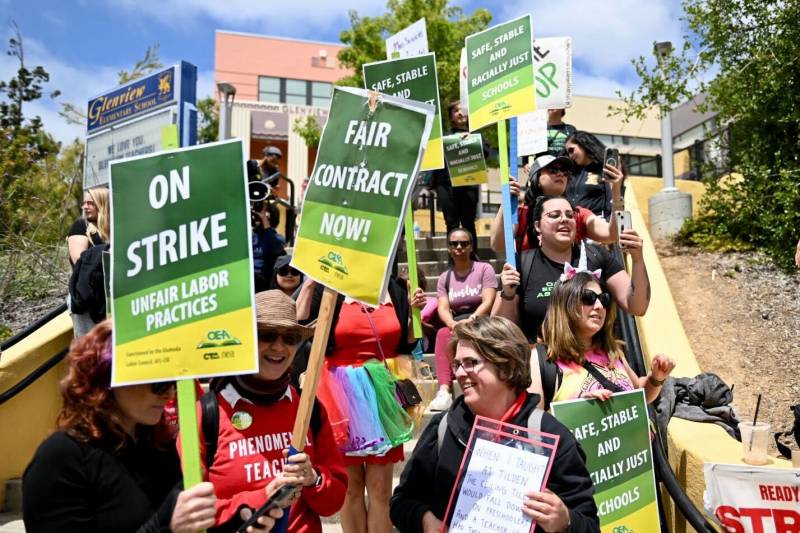In the hard-fought deal struck in Oakland on Monday, the two sides agreed to a shared-governance model for the district’s set of community schools, with steering-committee members appointed by both the school board and the union, according to OEA.
Both sides also agreed to identify district-owned locations that could be used to house students and to help secure housing vouchers and other financial support from government agencies.
Additionally, a new reparations task force — with co-chairs appointed by both the union and district — would identify schools with student populations that are at least 40% Black, and implement plans to help those students thrive.
Under the terms of the new agreement, guidance counselors would, for the first time, begin working at elementary schools, and teachers at those schools would receive additional preparation time. More resources would also be devoted to special education programs in the district. And the sizes of physical education and transitional kindergarten classes would be slightly reduced, with teachers paid extra for overages.
The district would also slightly increase the overall number of librarians and nurses and boost investments in visual and performing arts programs.
“Our common goal is to create an environment in which our children, families, educators and district staff are able to thrive,” Oakland Mayor Sheng Thao said in a statement emailed to KQED on Monday. “I look forward to working with OUSD and OEA as my Administration continues to invest in community and school safety, affordable housing, and improved infrastructure, not only to attract teachers and families to Oakland, but to keep them here.”
Negotiations throughout the strike were contentious, with the union accusing district officials of bargaining “in bad faith,” and the district calling teachers’ demands unreasonable and naive and claiming their actions would jeopardize students’ grades and graduation prospects. Tony Thurmond, the state superintendent of public instruction, and other government officials stepped in to help break the impasse at the bargaining table.
Teachers began the bargaining process last October, and have been working without a contract since their previous one expired in March. The district, facing major budgetary challenges amid years of declining enrollment, initially refused to bargain with teachers over the “common good” proposals, insisting on only considering more conventional issues, like wages and working conditions. But after union negotiators held firm, seven days into the walkout, the district over the weekend acceded to some of their additional demands.
Kimi Lee, a parent of two OUSD students, said her family went to sleep on Sunday night assuming school would be called off yet again on Monday. After receiving the early morning announcement about the tentative deal, both of her kids decided to wait until Tuesday to return to their classrooms.
The length of the strike “was a bit of a shock,” said Lee, who initially expected it wouldn’t last more than a few days.
“But overall, we supported the teachers. The teachers were fighting for the bigger picture,” she said. “The fact that homelessness, climate and all these other issues were folded in, we agreed with that.”
For Rob Daves, an OUSD parent who used to be a teacher in the district, news of the agreement came as very welcome relief.
“Glad [the] strike is over. [It] was a huge impact on our family and especially our daughter,” Daves said in a text message.
But he noted he was disappointed that neither side adequately underscored the need for the state to dramatically increase funding for Oakland’s underresourced schools.
“If we actually value education, we must show it in material support,” he said.
This story includes reporting from KQED’s Vanessa Rancaño and Spencer Whitney, and The Associated Press.

